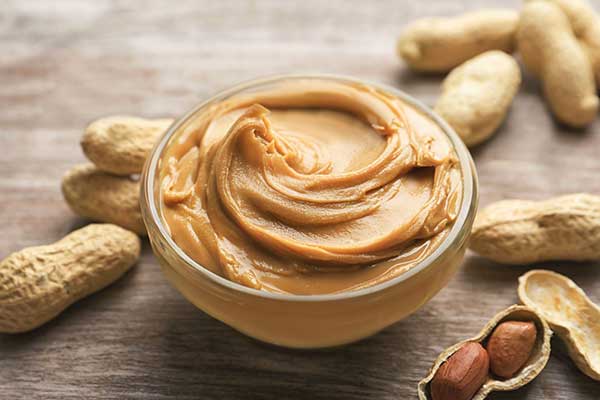According to an Ayurveda expert, consuming peanut butter at certain times of the day may have health implications, and it is crucial to choose the right time for optimal benefits. While peanut butter is a nutritious and delicious spread that provides essential vitamins, minerals, fiber, protein, and healthy fats, timing its consumption is emphasized. It is noted for being low in fat and high in protein, making it a healthy alternative for various foods. Proper timing is suggested to maximize its advantages, such as controlling blood sugar levels and promoting heart health, while minimizing potential side effects. Understanding the right time to consume peanut butter can contribute to its positive impact on overall health and well-being.
Time to eat peanut butter:
According to Ayurveda, the timing of consuming peanut butter is considered crucial for optimal health benefits. It is recommended to avoid consuming peanut butter during the morning hours between 6 am to 10 am, which corresponds to the period of Kapha dosha. During this time, the body is characterized as having qualities associated with oiliness and fat. Instead, it is suggested to enjoy peanut butter later in the day, such as after exercising or during other times, to ensure better digestion and absorption of its nutritional benefits. By aligning the consumption of peanut butter with specific periods in Ayurveda, individuals can potentially enhance their overall well-being and make the most of its nutritional value.
Who avoid peanut butter:
People with allergy issues and poor digestion should exercise caution and limit their consumption of peanut butter to avoid potential flare-ups. Peanut butter may not be suitable for individuals with weak digestion or those prone to heat-related issues such as rashes and allergies. In such cases, it is advised to restrict the intake of peanut butter to a small quantity to minimize the risk of adverse reactions. For those with known allergies to peanuts, complete avoidance is recommended to prevent severe allergic reactions. It’s essential for individuals to be aware of their health conditions and consult with healthcare professionals or nutritionists to determine whether peanut butter is suitable for their diet, considering their specific health concerns.
Benefits of peanut butter:
Peanut butter offers a range of health benefits when consumed in moderation and as part of a balanced diet. Here are some notable benefits:
1. Prevents Diabetes: Peanut butter can help reduce blood sugar spikes, potentially lowering the risk of developing diabetes. Regular consumption, as suggested by a study, demonstrated a 21% reduction in the incidence of diabetes.
2. Protects Against Cancer: Studies have indicated that the consumption of peanut butter may contribute to a reduced risk of colorectal (intestinal) cancer. This could be attributed to the presence of antioxidants such as resveratrol and phytosterols in peanut butter.
3. Boosts Concentration: Peanut butter is a nutrient-dense food that provides energy and nutrients, making it a good choice for maintaining focus during long study or work sessions. The combination of protein, healthy fats, and fiber contributes to sustained energy levels.
4. Heart Health: Peanut butter contains omega-6 fatty acids that may contribute to heart health by helping to lower bad (LDL) cholesterol and increase good (HDL) cholesterol levels. Peanuts are also a natural source of arginine, an amino acid that supports good blood vessel function, potentially preventing heart and vascular diseases.
Additional Points:
- Nutrient-Rich: Peanut butter is rich in essential nutrients, including protein, healthy fats, vitamins, and minerals, making it a nutritious addition to a balanced diet.
- Satiety: The combination of protein and healthy fats in peanut butter helps promote a feeling of fullness, which may assist in weight management.
- Versatility: Peanut butter can be easily incorporated into various dishes, such as smoothies, sandwiches, and snacks.
Important Considerations:
- Moderation: While peanut butter has health benefits, it’s important to consume it in moderation due to its calorie density.
- Allergies: Individuals with peanut allergies should avoid peanut butter and opt for alternative nut or seed butters.
Always consider individual dietary needs and consult with a healthcare professional or a nutritionist for personalized advice based on your health status and specific requirements.
Disclaimer:
The information contained in this article is for educational and informational purposes only and is not intended as a health advice. We would ask you to consult a qualified professional or medical expert to gain additional knowledge before you choose to consume any product or perform any exercise.








